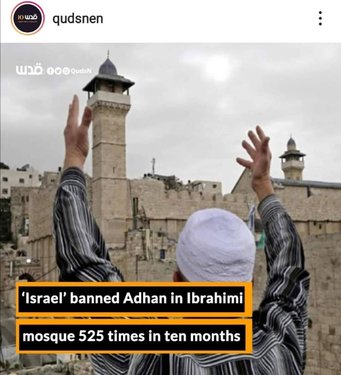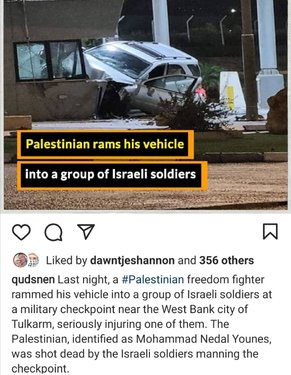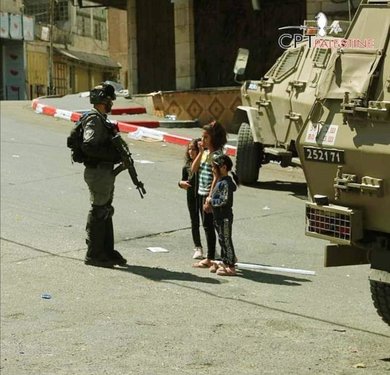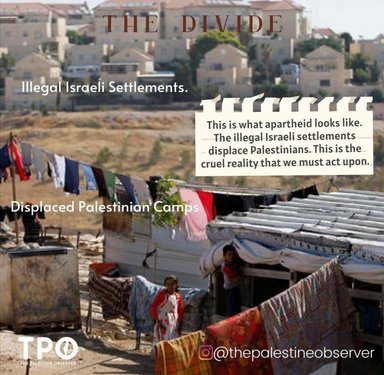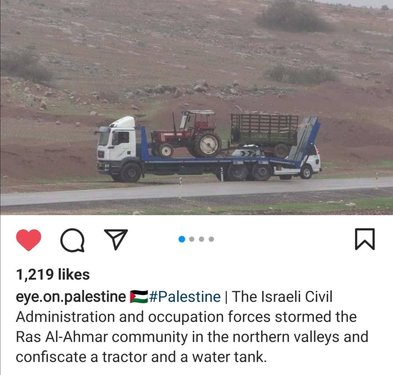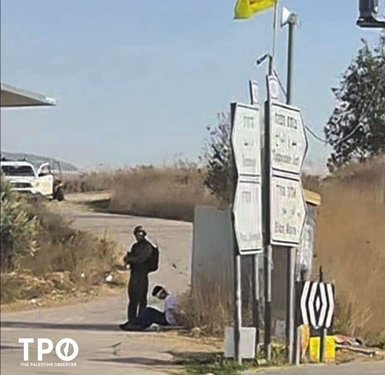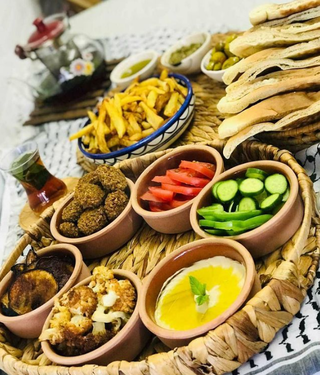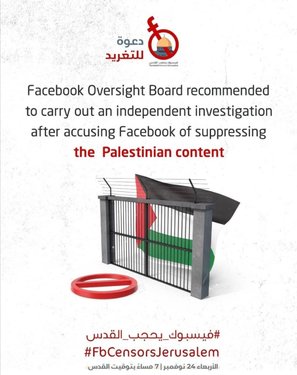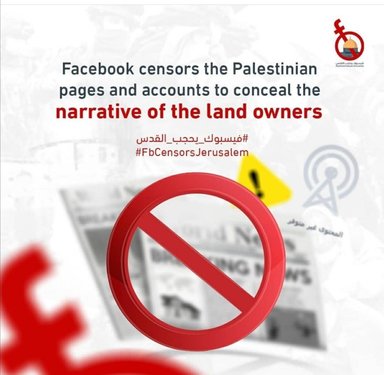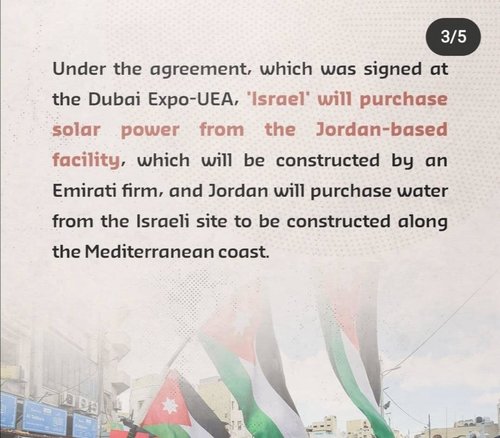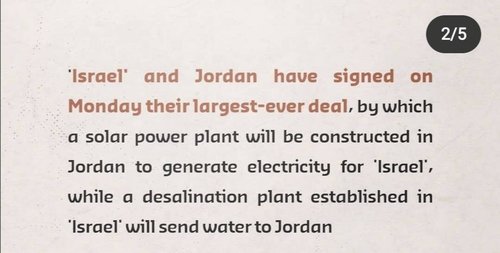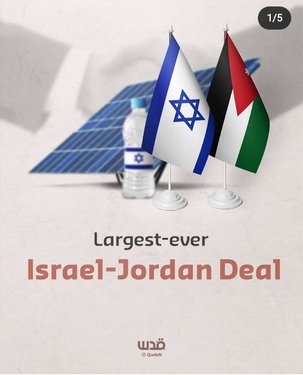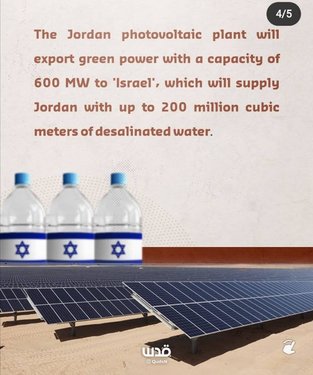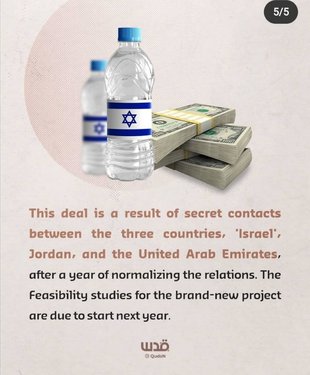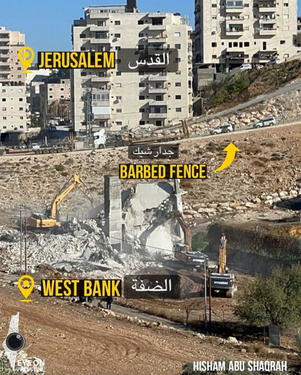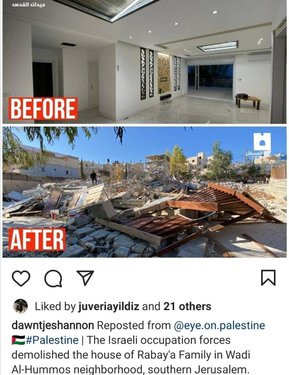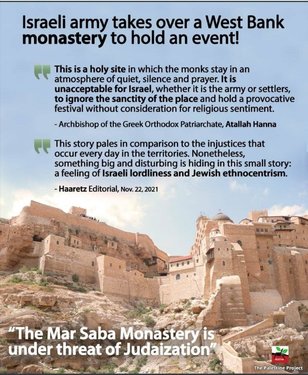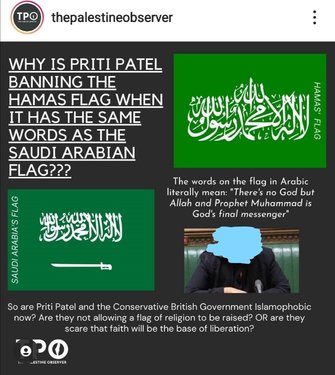-
Posts
8,461 -
Joined
-
Days Won
773
Content Type
Profiles
Forums
Events
Everything posted by ummtaalib
-
Q. What is the etiquette of visiting a sick person? (Question published as received) A. The etiquette of visiting the sick is based on giving comfort and hope to the sick person. This is the basic principle by which all etiquette may be evaluated. Any act that would bring comfort and give hope to the sick would be encouraged. Any act that would give the opposite effect should be abstained from. Hence, if the sick person is sleeping, they should not be disturbed unless seeing the visitor would make them happy. A person’s stay should not be so long that would inconvenience the sick person. Offer words of hope and comfort to the sick person and do not say anything negative in their presence. Learn the Duas for visiting the sick and recite them in the presence of the sick person. After visiting the sick person, take leave. Do not expect to be entertained at the home of the sick person unless you are sure the hosts would want you to stay. And Allah Ta’ala Knows Best Mufti Ismaeel Bassa Mufti Moosa Salie (The answer hereby given is specifically based on the question asked and should be read together with the question asked. Islamic rulings on this Q&A newsletter are answered in accordance to the Hanafi Fiqh unless otherwise stated.) Fatwa Department
-
-
Kuwait prohibits Israeli trade ships According to Kuwaiti newspaper Al Anba, Kuwaiti Public Works Minister Dr. Rana Abdullah Al-Fares issued on Saturday an order prohibiting the entry of any commercial ships to and from 'Israel' into Kuwaiti territorial waters. Under Kuwiati law it is illegal to import, exchange or possess any Israeli goods, commodities or products whether received directly or indirectly. www.instagram.com/p/CXHUnYgsxbB/
-
When there are heavy winds together with intense darkness, one should recite Surah Falaq and Surah Naas. عن عقبة بن عامر، قال: بينا أنا أسير مع رسول الله صلى الله عليه وسلم بين الجحفة، والأبواء، إذ غشيتنا ريح، وظلمة شديدة، فجعل رسول الله صلى الله عليه وسلم يتعوذ بأعوذ برب الفلق، وأعوذ برب الناس، ويقول: يا عقبة، تعوذ بهما فما تعوذ متعوذ بمثلهما (سنن أبي داود، الرقم: 1463) Hazrat Uqbah ibn Aamir (radhiyallahu ‘anhu) reports: “While I was travelling with Rasulullah (sallallahu ‘alaihi wasallam) between Juhfah and Abwa, a strong wind and intense darkness enveloped us. Rasulullah (sallallahu ‘alaihi wasallam) began to seek refuge with Allah Ta’ala by reciting Surah Falaq and Surah Naas. He then said, ‘Uqbah, seek refuge with Allah Ta’ala through these two Surahs for none can seek refuge with anything like these two Surahs.’” ihyauddeen.co.za
-
- 1
-

-
Horrendous scene! A young boy detained, handcuffed and blidfolded! The Israeli occupation forces detained a Palestinian child near the illegal settlement of Yetzahar, southern Nablus. Eye On Palestine (@eye.on.palestine) • Instagram photos and videos
-
Continuing violence by zionist soldiers... The Israeli occupation police attack the fans of Sakhnin football team, a Palestinian team in the 1948-occupied Palestinian territories, while they celebrating the victory of their team in Sakhnin city, today. www.instagram.com/p/CW6mzmulGjv/ The Israeli Civil Administration and occupation forces stormed the Ras Al-Ahmar community in the northern valleys and confiscate the properties and vehicles of the residents. www.instagram.com/p/CW7iZ7ct42m/ The Israeli occupation authorities razing a land in Jabal Al Mukabbir town in Jerusalem. www.instagram.com/p/CW7rTJ5lMqK/ Clashes broke out between Palestinian youth and the Israeli occupation forces that stormed Al Berih city, shortly before. www.instagram.com/p/CW6ql8ilqJm/ The Israeli occupation forces detain the boy Wisam Salaymah at " 160 Checkpoint " in Hebron after 3 hours of holding him at the Checkpoint. www.instagram.com/p/CW6ZR2yFRS_/ (the child was handcuffed and blindfolded, just sitting there with head down and fully armed soldier standing over him! inhumane and violent people!)
-
Palestinian writer and activist Mohammed El-Kurd delivered a speech at the UN on Monday, blasting the "Israeli settler-colonial regime" for its occupation of Jerusalem "Thank you for these groundbreaking speeches," came the acerbic start to El-Kurd's address. "I'm sure the occupation authorities are really concerned right now." Speaking on the United Nations on the International Day of Solidarity with the Palestinian People, El-Kurd described the day Israeli settlers took half of his home in Sheikh Jarrah, Jerusalem. He was 11 years old at the time. He said that the Israeli settlement expansion has not only affected his home village of Sheikh Jarrah but also daily life in Silwan, Eissawiya, and Masafer Yatta in the occupied city of Hebron. "The UN has called this a war crime but I know this is theft," he explained. "The battle over Sheikh Jarrah is not legal in its essence, it is political. It is part of the larger systematic essence to Israelise the entirety of Jerusalem, my native city. My family and my neighbours understand this, we know first hand that the Israeli judicial system is created by those who benefit endlessly from the Israeli settler-colonial regime." Israelise is a term used to describe the erasure of indigenous Palestinian heritage and populations by Israel. He spoke of how little faith Palestinians have in the justice system in the occupied territories, which he says is designed to protect Israeli settlers. "As I speak to you, our lawyer is trying to convince a settler judge to rule against settlements. The word apartheid comes to mind, but saying there is an asymmetry in justice in the Israeli judicial system is an understatement. What we have on our hands is a colonialist ideologically driven system built by and for colonisers." With their fearless and unfiltered words, Mohammed El-Kurd and his sister Muna have been credited with catalysing global uproar over Israel's violations of Palestinian rights, including expulsions in Sheikh Jarrah and the deadly Israeli aerial assault on Gaza earlier this year. But after a summer of global solidarity, El-Kurd said his Jerusalemite community can feel the world return to its silence. "This summer we took our struggle to the streets our efforts to resist this takeover were joined by Palestinians across Jerusalem and the world and what became known as the unity uprising. The situation rapidly escalated into attacks on besieged." "The reality for Palestinians however has not changed. Our neighbourhood was put under a blockade for three months maintained by Israeli forces with continuing restrictions intended to suffocate the lives of the hundreds of Palestinians who lived there, and yet meanwhile armed Jewish settlers who have already occupied some of our homes roam freely on the streets no questions asked." "On any given night, a dozen gun-wielding fanatics patrol my street with arrogant impunity. They are protected, even supported by the troops blockading our community," El-Kurd said. He went on to say the root cause for the suffering in Jerusalem goes beyond land and judiciary and roots in Israeli settler colonialism. "The reality that Palestinians across 70 years of zionist rule have experienced this vocabulary is not theoretical. It is evident in the attempts to throw us out of our homes so that settlers can occupy them with the backing of the regime whose forces and policies provide violent support for the transfer of one population to install another," he said. "I do not care whom this terminology offends." El-Kurd extended his solidarity to Palestinians in the besieged Gaza Strip which is suffering huge shortages of basic goods due to over a decade of a crippling siege by Israel. He also acknowledged Palestinian prisoners in Israeli jails, including his neighbour Murad, "an elementary school teacher who was robbed from his family and put into prison, slapped with trumped-up and fabricated charges only because he dared say no to ethnic cleansing". UN Secretary-General Antonio Guterres warned on Monday the situation in the region "continues to pose a significant challenge to international peace and security". The "persistent violations of the rights of Palestinians, along with the expansion of Israeli settlements, risk eroding the prospect of a two-state solution", he said. Source
-
Candle of Jewish Hanukkah lit at Ibrahimi Mosque According to local sources, Israeli President Isaac Herzog stormed the Ibrahimi Mosque in the occupied West Bank city of Hebron and lighted the candle of Hanukkah. Meanwhile, Israeli War Minister, Benny Gantz, lighted the candle of Hanukkah at al-Buraq Wall in occupied www.instagram.com/p/CW0_cImsQTt/
-
A traditional Palestinian breakfast Eye On Palestine (@eye.on.palestine) • Instagram photos and videos This is humus (garbanzo beans smashed mixed with sesame purée,lemon juice and olive oil on top. Next is fried cauliflower and next fried sliced eggplants and the rest you should know. If you have a chance try it with pocket bread (hbazzi7359aolcom)
-
By Shaykhul-Hadīth, Hadrat Mawlānā Muhammad Saleem Dhorat hafizahullāh Every capability and strength in the human body has limitations. For example, the human capability of seeing is limited; one may be able to see someone walking at a distance of 100 metres, but as the person walks further away, it will become increasingly difficult to see him. After travelling a certain distance, the person will completely disappear from sight. The human capability of hearing is also limited; one is able to hear a person speaking from a close distance, but is unable to hear a person speaking from a far distance. Similarly, every strength and capability granted to us by Allāh ta‘ālā has limitations. The intellect is also one of these limited capabilities granted to us by Allāh ta‘ālā. There are many things which the human intellect cannot perceive as it has boundaries beyond which it cannot function. Therefore, just as we do not expect to be able to see everything with our eyes or hear every sound with our ears, we should not expect to be able to understand everything with our intellects. The Three Sources of Knowledge There are three sources of knowledge: 1. The first source of knowledge is the five senses. We use our five senses (i.e. eyesight, hearing, taste, smell and touch) to perceive different things. For example, when we touch a surface, we learn that it is smooth or rough. When we taste a fruit, we gain knowledge of whether it is sweet or sour etc. 2. The second source of knowledge is the intellect. If used within its limits, the intellect is a great blessing of Allāh ta‘ālā. By using the intellect to ponder upon the creation, one can attain the recognition of the Creator. This alone shows how great of a blessing the intellect is. Allāh ta‘ālā states in the Glorious Qur’ān, From the five senses, we most often use the senses of seeing and hearing, thus Allāh ta‘ālā sufficed on mentioning only these two when referring to the five senses. Thereafter, He mentioned the heart with which we think and understand. Thus, in this verse, Allāh ta‘ālā states that He granted us senses and intellect, through which we can acquire knowledge. 3. The third source of knowledge is wahy (Divine Revelation). Allāh ta‘ālā revealed wahy upon the Prophets ‘alayhimus salām and they conveyed the knowledge of wahy to their nations. Limitations of the Intellect From the three sources of knowledge, the five senses and intellect have limitations: 1. The five senses cannot perceive what the intellect is able to perceive. For example, the intellect can perceive that there is oxygen in a room but the five senses cannot. Intellect tells us that a human cannot survive without oxygen; therefore, the fact that people in that room are alive certainly means that oxygen is present in the room. Now, if a person refuses to believe that oxygen exists in the room because of not being able to perceive oxygen with his five senses, then we would all deem him to be irrational. We would explain that he will only be able to come to the correct understanding by applying his intellect, as the five senses have their limitations and cannot perceive what the intellect is able to perceive. 2. Similarly, the intellect cannot perceive what wahy is able to perceive. Just as the five senses fail to grasp what the intellect can grasp, the intellect fails to grasp what wahy can grasp. Therefore, just as we accept the limitations of the five senses, we also need to accept the limitations of the intellect. Hakīmul-Ummah, Mawlānā Ashraf ‘Alī Thānwī rahimahullāh very beautifully explains the limitations of intellect. He says, ‘…Like other senses the perceptions of intellect have limits. Beyond these limits, wahy is needed. The example of this is that if a person (mounted on a horse) desires to climb a mountain, the horse will only be able to go till the bottom of the mountain. To climb the mountain, one will have to go himself. Similarly, the feeble intellect is incapable of climbing the mountain (which can only be climbed by wahy)…’ Do Not be Self-Opinionated After recognising the limited nature of the intellect, we can understand how a person will be prone to making mistakes if he was to apply his intellect beyond its boundaries. We can also better understand the dangers of the norm today, where each person has taken his own intellect as the sole authority in deciding what is right and wrong. This attitude is a sign that one has too much reliance on his own opinions, a quality regarding which Nabī sallallāhu ‘alayhi wasallam warned the Ummah. Rasūlullāh sallallāhu ‘alayhi wasallam said, Sayyidunā ‘Umar radhiyallāhu ‘anhu said, There are many Islamic beliefs and teachings which we cannot comprehend with our intellects, yet we still have conviction in their truthfulness solely because Allāh ta‘ālā has revealed them in the Glorious Qur’ān or through His Messenger. For example, we believe in the existence of Jannah and Jahannam and in the life Hereafter despite not being able to comprehend them. We wholeheartedly accept these because they have been sourced from wahy which is beyond the perception of our intellects. In fact, attempting to understand such beliefs with the intellect will lead one astray. It was due to applying the intellect beyond its limits that many individuals and sects rejected the truth and deviated from the straight path. Do Not Follow Mere Speculations One incorrect use of the intellect is to jump to conclusions by following whatever comes to mind, especially when it comes to the matter of religion. By doing so, one is basing his religion on mere speculation. Allāh ta‘ālā states regarding those who disbelieve in the Hereafter, Conclusion We must understand that our duty as Muslims is to submit wholeheartedly to the beliefs and teachings of Islām, whether our intellects are able to comprehend or not. This can only be done when one acknowledges the limitations of the intellect, thus accepting the knowledge received through wahy. We should be confident in this regard and should avoid attempting to justify all the injunctions of Dīn through the intellect. May Allāh ta‘ālā grant us the ability to totally submit our intellects to wahy and grant us steadfastness on Dīn. Āmīn. Extracted from Riyādul Jannah, Vol. 29 No. 9, 2020 © Riyādul Jannah
-
Rasulullah Sallallahu Alayhi Wa Sallam said: “The best of Muslims is he from whose hand and tongue, other Muslims are safe.” (Muslim) “The best of people are those with the most excellent character.” (Tabarâni) “The best prayers for women are those performed in the most secluded parts of their houses.” (Ibn Khuzaymah) “The best of you are those who feed others and return greetings.” (Abu Ya’lâ) “The best of that which you treat yourself with is cupping.” (Hâkim) “The best of days that you should perform cupping are the 17th, 19th and 21st of the month. I did not pass a single gathering of angels on the night of Isrâ’ except that they would say to me, ‘O Muhammad, perform cupping!’” (Ahmad) “The most beloved of deeds according to Allah are the continuous ones, even if they are little.” (Bukhari) “The most beloved words according to Allah the Most High are four: Subhânallah, Alhamdulillâh, Lâ ilâhaillallah and Allahu Akbar.” (Muslim) “The best of provision is that which suffices a person.” (Ahmad) “The most beloved word according to me is that which is most truthful.” (Bukhâri) “The best word of remembrance is: Lâ ilâha illallah and the best supplication is: Alhamdulillâh.” (Tirmidhî) “The best of charity is that which is given to the relative that harbours enmity against you.” (Ahmad) “The best prayer is that with the longest (Qiyaam) standing.” (Muslim) “The best of all worship is supplication (dua).” (Hâkim) Rasulullah Sallallahu Alayhi Wa Sallam was asked: “Which of the believers are the most intelligent?” He replied, “Those who remember death the most and are best prepared for what comes after it. They are the intelligent ones.” (Tabraani) Jamiatul Ulama (KZN) Council of Muslim Theologians
-
- 1
-

-
VIOLENCE by Israhel-lis in capital letters The Israeli occupation police stormed the well-known Palestinian restaurant of " The Old Man and the Sea " in the occupied city of Jaffa, assaulted the workers and closed it for 30 days.Eye On Palestine (@eye.on.palestine) • Instagram photos and videos The Israeli occupation forces brutally assaulting Palestinian young men in Silwan village, this morning. www.instagram.com/p/CWtDzoEliAu/
-
Belgium moving forward Belgium’s foreign office has announced on Wednesday that it will label all products produced in West Bank Israeli settlements, considered illegal under international law. Israel slammed Belgian's decision and canceled meetings with the Belgian Foreign Ministry and the country's parliament. www.instagram.com/p/CWtsLJPNgoX/
-
-
Q. Party A wishes to marry Party B. However, they reside in different countries. If they have a virtual Nikah over video call will this be valid? (Question published as received) A. It is a condition for the Nikah to be valid that both parties and/or their representatives, as well as the witnesses, be present at the meeting in which the Nikah is officiated. Hence, at the place where the Nikah is being conducted, representation from both parties must be present. If only one party is present and the other party is participating in the proceedings over a video call, this will not fulfil the requirement for a valid Nikah. It should be noted that the absent party can appoint a representative to represent them at the Nikah meeting. This will fulfil the requirement for the Nikah to be valid. (Shaami Vol. 3 pg. 21) And Allah Ta’ala Knows Best Mufti Ismaeel Bassa Mufti Moosa Salie (The answer hereby given is specifically based on the question asked and should be read together with the question asked. Islamic rulings on this Q&A newsletter are answered in accordance to the Hanafi Fiqh unless otherwise stated.) Fatwa Department Jamiatul Ulama (KZN)
-
Jordan-Israhell deal Yesterday: #Israel, #Jordan and the #UAE are expected to sign a deal today in Dubai under which a solar plant in the Jordanian desert will generate power for Israel, in exchange for a desalination plant in Israel that will provide Jordan with water www.instagram.com/p/CWoS99OK3vg/ Jordan University students chanted for Palestine in rejection of the brand new Israel-Jordan deal, through which a solar power plant will be constructed in Jordan to generate electricity for 'Israel', while a desalination plant established in 'Israel' will send water to Jordan. www.instagram.com/p/CWoIjDnFXwv/ (Traitors to their own!)
-
The Israeli occupation forces demolished a house in Al Carmel town, in massfer Yatta today, and moved to Al Derat village and demolished a new cemetery in the village. (The family's clothes are drying in teh background!)
-
Today, The Israeli bulldozers demolished an underconstruction Palestinian residential building near the barbed fence in Wadi Al-Hummos neighborhood, which is part Sur Baher village in Jerusalem, but located out side the Apartheid Wall. By @abushaqrahhisham
-
-
Question I read your answer titled ‘Can a wife refuse her husband’s call to bed?’ in which, in light of the many Prophetic Hadiths, you stated that a wife has a religious obligation to fulfil the sexual needs of her husband unless she has an excuse. Is this ruling only for the wife, or can it be extended to the husband? Does the husband also have a religious duty to fulfil the sexual needs of his wife? ANSWER In the name of Allah, Most Compassionate, Most Merciful, The right to sexual fulfilment belongs to both the husband and wife, and it is wrong to assume that in Islam only the husband has this privilege. The wife has as much right to expect that her sexual needs are fulfilled as the husband. As such, sexual relations are a right of both spouses. The renowned Hanafi jurist (faqih) Imam Ibn Abidin (Allah have mercy on him) states, ‘Among the effects of marriage is the permissibility of each spouse deriving sexual pleasure from the other.’ (Radd al-Muhtar ala ‘l-Durr al-Mukhtar 3/4) A husband is religiously obliged to fulfil the sexual needs of his wife and not deprive her of this right. Refusing sex without a genuine reason or excuse and using it as a weapon against her constitutes a sin in the eyes of God (i.e. in the next life). Many jurists (fuqaha) hold that it is obligatory for the husband to engage in sexual intimacy with his wife every so often. (See: Bada’i al-Sana’i 2/331) Sayyiduna Abdullah ibn Amr (Allah be pleased with him) relates, ‘My father married me off to a woman of good lineage, and he used to consult his daughter-in-law (i.e. my wife) and ask her about her husband. She would say to him, ‘An excellent man, [but] a man who has not slept with us in bed nor removed the veil from us since we came to him!’ When that went on for a long time, my father mentioned it to the Messenger of Allah (Allah bless him & give him peace). The Messenger of Allah (Allah bless him & give him peace) said, ‘Send him to me.’ So I went to meet him soon after, and he said, ‘…Have I not been informed that you fast all day and pray all night?’ I said, ‘Yes, O Messenger of Allah.’ He said, ‘Do not do it. Fast [some days] and do not fast [other days], and pray and sleep, because your body has a right over you, your eye has a right over you, your wife has a right over you, and your visitor has a right over you…..’ (Combined from two variations of the same Hadith in Sahih al-Bukhari no: 4765 and 1874) In this Hadith, the Messenger of Allah (Allah bless him & give him peace) advised Abdullah ibn Amr ibn al-Ass (Allah be pleased with him) to be moderate in his worship, and upon learning that he had not slept with his wife, the Messenger of Allah (Allah bless him & give him peace) said to him, ‘Your wife has a right over you,’ clearly defining the husband’s responsibility of fulfilling the sexual and other needs of the wife. Abu Juhayfa relates, ‘The Messenger of Allah (Allah bless him & give him peace) joined Salman and Abu al-Darda’ (Allah be pleased with both) together in brotherhood. Salman visited Abu al-Darda’ and saw [his wife] Umm al- Darda’ poorly dressed and thus said to her, ‘What is the matter with you?’ She said, ‘Your brother Abu al-Darda’ has no need of this world [meaning he did not care whether his wife adorned herself for him or not since he was very busy in worshiping Allah].’ Abu al-Darda’ came and made some food for him [i.e. Salman]. Salman said, ‘Eat.’ He replied, ‘I am fasting.’ Salman said, ‘I will not eat unless you eat.’ So he ate. In the night, Abu al-Darda’ went to stand in prayer and Salman said to him, ‘Sleep!’ and so he slept. Then he got up again and Salman said, ‘Sleep!’ When it was the latter part of the night, Salman said, ‘Now get up, and they both prayed together.’ Salman then said to him, ‘Your Lord has a right over you, your self has a right over you and your wife has a right over you, so give each rightful person their due right.’ Abu al-Darda’ came to the Messenger of Allah (Allah bless him & give him peace) and mentioned this to him and the Messenger of Allah (Allah bless him & give him peace) said, ‘Salman spoke the truth.’ (Sahih al-Bukhari 1867) As such, a husband is religiously obliged to have sexual relations with his wife every so often – enough to maintain her outward and inward chastity such that she does not incline towards committing a sin. If a man consistently refuses his wife, he will be sinful in the sight of Allah. However, as with the case of the husband’s right to sexual intimacy, this obligation is conditional on his physical ability to have sex with his wife. If he is too ill or weak to engage in any sexual activity or fears that having sex with his wife will result in unbearable weakness, then he will not be sinful. All of the above is at the level of law. The spirit of marriage is different. Seeking one’s rights through demands and argumentation contradicts the spirit of marriage, and never solves anything. Rights should always be understood in light of the following Prophetic guidance: ‘The most perfect of believers are those most perfect in character; and the best amongst you are the best of you to your spouses.’ (Sunan al-Tirmidhi 1162) (For more details on this, you may refer to my book, ‘Islamic Guide to Sexual Relations‘ available from most Islamic book retailers). And Allah knows best [Mufti] Muhammad ibn Adam Darul Iftaa Leicester , UK Source


